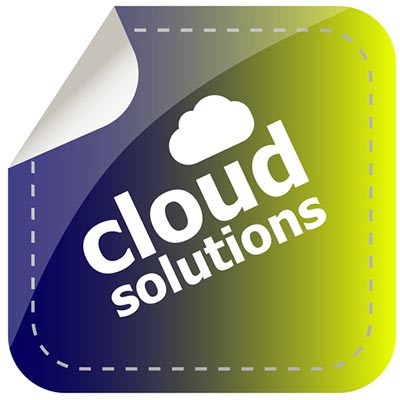The cloud gives businesses more opportunities than ever to change operations for the better, but a poorly configured cloud could create more problems than it solves—including the potential for a security breach! Here are some of the most important reasons why you must configure your cloud solutions properly.
PCSOFT Blog
If you are a frequent reader of this blog, you know we talk a lot about the cloud and its benefits. Cloud computing plays a crucial role in enhancing mobile productivity by providing various services and features that empower users to access, collaborate, and perform tasks efficiently. Here are three ways in which the cloud contributes to mobile productivity.
If you have the money, purchasing your own computing infrastructure isn’t an issue. Unfortunately, these systems cost tens of thousands of dollars and that is before you start compiling workstations. This week, we’d like to discuss the pros and cons of incorporating some cloud computing resources into your network infrastructure and if they can save you money.
Relying on remote workers was always scary for a lot of businesses; particularly small businesses. The fear stems from a lack of control, whether it be monitoring security or productivity. This is why, before the pandemic, you saw a lot of businesses limit or disallow the practice completely. Today, however, most organizations have a completely different view of remote work. It literally saved many businesses.
Data backup is one part of running a business that nobody wants to think about, but it’s something that must be considered should anything ever happen to your company’s data. In a world where disasters are so unpredictable and devastating, you can never know when one will strike, so you must take preventative measures now so that you are not caught unawares. Let’s go over one of the best ways you can get ready for these disasters: cloud-based automatic data backups.
Cloud technology has shifted the way that many businesses operate in their day-to-day, offering advantages that were once a business owner’s pipe dream. Of course, there are now different ways that businesses can embrace these advantages. Let’s compare your options to determine which one better matches up to your needs.
With the development of business technology, tools have been introduced that provide greater and greater benefits to organizations that use them. Perhaps the most useful that we have today, the cloud, has enabled businesses of all sizes to take advantage of far better tools than were available to them before. Let’s take a closer look at some of them.
There are a lot of benefits of moving your business to the cloud. Typically, we promote the reduction in capital expenditures, the 24/7 availability, and all the other features you can gain. The cloud is a useful tool for all types of business computing functions. Today, large sections are moving their business to the cloud, but is it really right for you? Let’s look at how cloud computing can potentially be detrimental for your business.
Most businesses make technology decisions with an eye on growth. One technology that is being used more than ever is cloud computing. There are many different benefits that an organization can see by using the cloud. Today, we will address these benefits and explain how cloud computing works to facilitate business growth.
For this week’s tip, we thought we’d talk about something that most businesses have already dabbled in: the cloud. If your business is like those that we interact with, you’ve already implemented some type of cloud service, but if you haven’t, you should know just how cloud-hosted services can benefit the small business. We’ll look at the benefits of cloud-hosted services and how to pick which services are right for you.
The latest technology can help businesses compete with even large organizations if it’s implemented properly. The cloud is one of these tools that helps new businesses take advantage of goods and services previously inaccessible to those with limited budgets and in-house assets. In fact, the cloud is one of the few solutions your organization can implement that actually grow alongside your business.
The Internet is incredibly important to the success of not only businesses, but countless users all over the world. In terms of the actual strength of the Internet though, people might not know just how many options there are out there that can provide access to this dynamic and feature-filled network. Thanks to the Internet, businesses all over the world have access to plenty of great services that enable them to accomplish as much as possible.
In today’s medical field, technology is a big player. With regulations dictating that even independent practices attempt to make the jump to a dedicated EMR/EHR. An EMR/EHR, or electronic medical record/electronic health record interface, provides physicians and patients a way to connect to promote efficient healthcare delivery and organizational profitability. Today, we will look at how smaller healthcare providers are utilizing EMR/EHR solutions that are hosted in the cloud, bucking the trend of hosting their patient information locally.
The cloud is a great asset for any business, whether you’re a major enterprise or a small family-owned operation. However, there are different types of hosted solutions, and they all offer various benefits and hindrances for your business. What’s the best type of cloud for your organization, and how can you protect the security and integrity of the data stored in it?
There are generally three types of clouds: public, private, and hybrid. Each of these has their own distinct benefits, and depending on the type of business you run, you might be more inclined to select one over the other.
Public
There are many reasons for a small business to select a public cloud as its preferred solution. For one, it removes the responsibility of management and maintenance from your company’s shoulders, allowing you to focus on operations. It has gotten to the point where public cloud solutions are both affordable and quite secure (for the most part), which means that even small businesses with limited budgets can take advantage of the basic aspects of a public cloud-hosted solution.
The main issue that businesses have with public clouds is that they don’t have as much control over their data--or the management of it. Basically, the public cloud is secured and maintained by those hosting it, which limits the ability of companies to implement secondary or more advanced security features. Consider whether your organization wants and needs this additional customization and security before investing in a public cloud.
Private
A private cloud, however, is generally hosted in-house on your company’s hardware, which enhances the security of your cloud system. As long as you have the computing resources, you can customize and control your cloud solution as you see fit. This is the preferred method of cloud management for organizations that have in-house teams dedicated to maintaining advanced computing infrastructures.
Of course, for companies that don’t have internal IT departments, the lack of regular maintenance and management can lead to wasted resources and crippling disasters. If you don’t take care of your technology, it can come back to bite you when you need access to it most. Thankfully, there is a middle-ground solution that works for both small businesses and larger enterprises: a managed private cloud.
Our Managed Private Cloud Solution
Small businesses can take advantage of a private cloud solution without the need to maintain the server hardware or other technology required, and it’s all thanks to modern managed IT solutions. PCSOFT can help your company implement an on-premise private cloud solution that we can remotely monitor and maintain. This keeps you more focused on daily operations and less on what could potentially go wrong. Since you have talented technology professionals working on your systems, you can keep operations moving forward relatively worry-free. Of course, if any issues do crop up, we will tend to them as needed.
If you’d rather your office didn’t have to worry about an in-house infrastructure, we can help you with that as well. We can partition off a portion of our in-house infrastructure to host your managed private cloud solution. Or for organizations that want the security of a private cloud with the cost reduction that often comes with a public cloud, we can set up a hybrid cloud interface. This will enable you to both manage and maintain the core computing construct of your business, while taking advantage of offsite resources for less-important parts of your computing infrastructure. All you will need is access to the Internet, and we’ll take care of the rest.
To learn more about hosted private cloud solutions from PCSOFT, reach out to us at 02 98730080.
Cloud computing has been a godsend for many businesses by providing the flexibility and scalability they need to grow and enhance their offerings. Cloud computing, of course, also provides some capital cost reduction. There is no question that the cloud brings plenty of benefits to companies small or large--they now have the ability to pay per month for the computing resources they were making hefty capital investments for not too long ago; and, by-in-large, these investments pay off.
One problem we’ve seen over the years is that companies are so enthusiastic about the prospects of moving data and business process to the cloud that they don’t properly plan their implementations. This can present organizations with wild scenarios where data is all over the place and that their once-reliable in-house computing environment is now disjointed and not working in concert with cloud-based resources.
In order to keep this from happening, organizations need to do their due diligence and find the cloud platform that is right for their needs, while proactively considering the threats their business faces by performing a hasty migration.
What’s missing from the cloud? For many businesses, proper planning.
Migration tips to consider
When moving to the cloud, you have to evaluate how you are going to get there with what you already have. Unfortunately, many businesses don’t consider their data, their applications, and their in-place integrations before committing, and pay for it afterwards.
- Start small and work from there - You wouldn’t dump everything on your on-premise network infrastructure, so why would you do it in the cloud? After all, these are still physical machines somewhere. Businesses should start with a single application, or process (like storage), or a new Internet-based application that is not critical for business use. Once this is successful, and you show clear metrics of success, you can start amping up your cloud migratory projects.
- Augment your existing infrastructure - A powerful benefit of the cloud is that it can extend what you are already in to. You don’t need to move all of your data and infrastructure to the cloud. Most businesses will benefit most from the hybrid-cloud platform. Moving non-essential infrastructure to the cloud can be a great way to utilize the power of hosted computing, without putting your business in jeopardy.
- Hosted solutions are hosted somewhere - You’d be amazed at how many people don’t consider how there is a physical data center hosting their “cloud-based” data and computing infrastructure. By selecting a cloud provider that uses industry-best practices in their management and security systems, you will know that your hosted data and infrastructure are kept on reliable and effective platforms.
- Cloud security has changed - Things have changed substantially in the past few years. Cloud computing has changed things in administration, but it has also changed things in security. With hosted computing that supported remote workers and anytime, anywhere access, network security couldn’t adopt the old “castle and moat” strategy because there were always too many holes in the firewall. This created the new security model where administrators and solutions focus on protecting data and providing managed access. If you are able to see the cloud as an extension of your on-premise infrastructure and create a model to ensure that data is secure and accessible, you are doing more than the typical organization who jumps into the cloud with both feet, only to fall right through. By looking at how you share and access data on your current infrastructure you will begin to understand where the potential security gaps in your system are, and then focus on patching them.
Call the Experts
If you are looking to move some or all of your computing resources to the cloud, you have to be more careful than you may think. The IT professionals at PCSOFT can provide you with the resources you need to make a successful cloud migration--protecting the data and applications your staff depends on. For more information about hosted computing options in the cloud, or to talk to one of our knowledgeable technicians about moving some or all of your business’ data and infrastructure offsite, call us today at 02 98730080.
For much of the past century, if you wanted to work among the clouds, you’d join the Air Force and take it from there. Nowadays, however, working among the clouds can mean that you want to work with advanced computer systems that deliver computing, security, storage, and utilities to businesses and end-users from all around the world.
The cloud trend has been very friendly toward businesses, allowing organizations to fulfill many of their needs and simplify processes that were challenging them only a few years ago. If you’ve never considered the cloud for your organization, it’s time to rethink your choices and ask yourself why you’re hesitant when there are so many great benefits of cloud implementation.


















